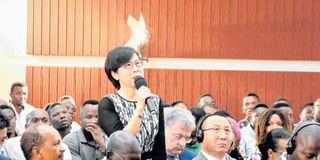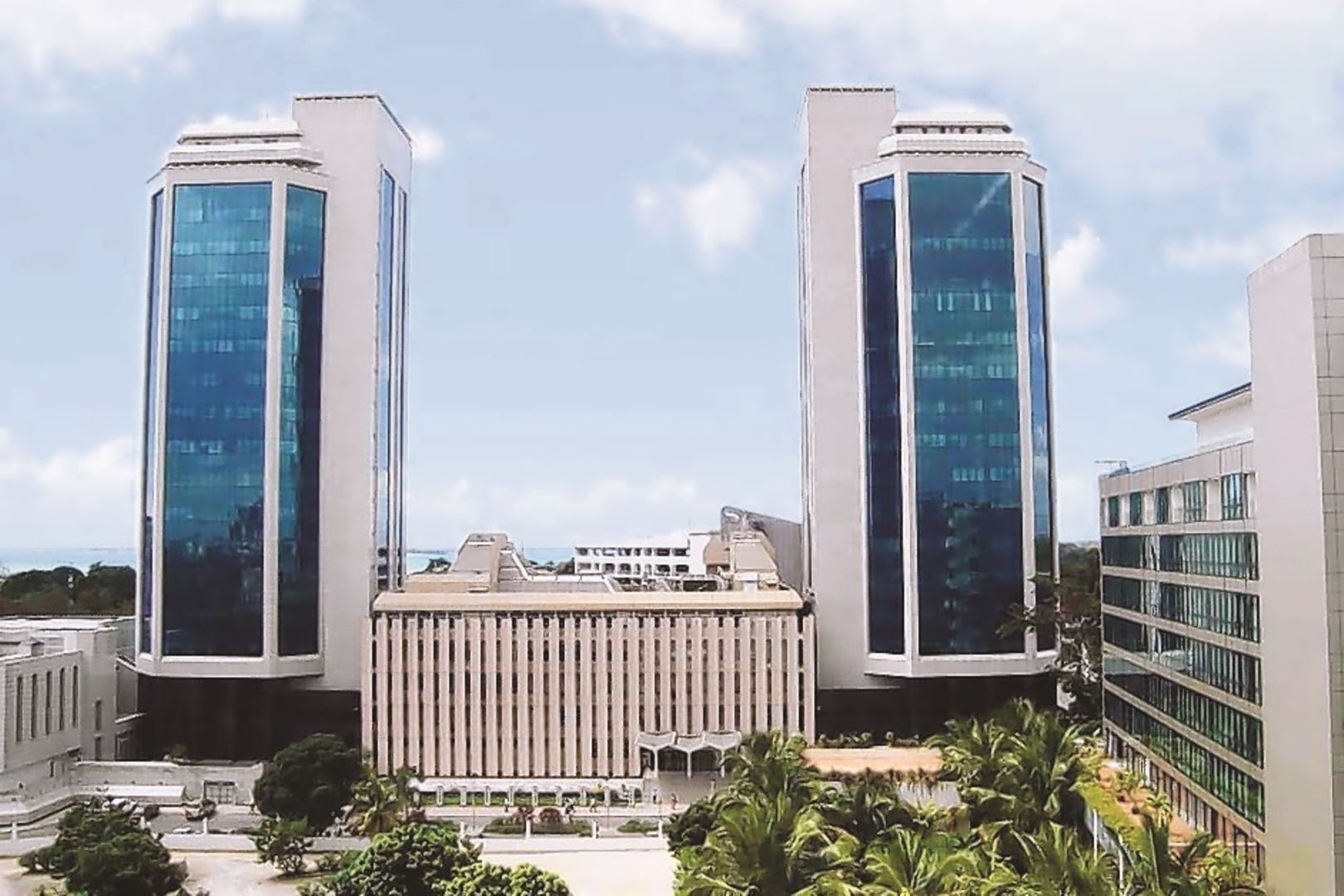Why Tanzania wants Zim sanctions lifted

Chinese Ambassador to Tanzania Wang Ke speaks during the University of Dar es Salaam Forum that discussed economic sanctions imposed on African countries including Zimbabwe. PHOTO | ERICKY BONIPHACE
Dar es Salaam. Tanzania is leading a crusade to have the international community lift sanctions imposed on Zimbabwe.
Speaking with The Citizen yesterday, the Foreign Affairs and International Cooperation minister, Prof Palamagamba Kabudi, said Tanzania is pushing for the lifting of sanctions against Zimbabwe as part of the resolutions passed after assuming the Southern African Development Community (Sadc) chairmanship.
“This is the country’s agenda. Mozambique will continue with this advocacy if our term expires without success, the same way we succeeded in the industrial week that started four years ago,” he said.
The outspoken minister said Tanzania was sympathising with Zimbabweans in the latest crusade as a diplomatic pride, said the minister who chairs the council of ministers in Sadc.
Yesterday, thousands of people marched across Zimbabwe in government-organised protests against US and EU sanctions.
The demonstrators said the sanctions have ruined their country’s economy.
However, US and EU argue that the sanctions have been imposed on individuals and companies and have no impact on the economy.
But critics in Zimbabwe say the government is trying to deflect anger about the worsening economic crisis which has seen increasing inflation and people’s incomes falling.
Opposition leader Nelson Chamisa said the protests were part of a propaganda effort to mask the country’s “failed leadership.”
Here in Tanzania, international relations experts and political commentators say the decision by Tanzania to campaign for Zimbabwe’s freedom from sanctions has come at the right time, cautioning that human rights and civic liberties in Tanzania need to be strongly addressed too.
The campaign followed President John Magufuli’s remarks made on May 28, 2019 in Zimbabwe’s capital of Harare during his state visit, when he said the country would record tremendous economic growth once the sanctions were lifted.
“The lifting of the sanctions will shield citizens in Zimbabwe, especially women and children from economic hardships,” said President Magufuli.
The feeling among government top leaders is that once the trade barriers are removed from the landlocked country, its economic woes would end.
This week, CCM vice chairman Phillip Mangula reiterated that the international community should lift the sanctions against Zimbabwe unconditionally.
“The CCM government is aware of efforts by the government in Zimbabwe to strengthen democracy, good governance and bringing economic improvement,” he told a press conference in Dar es Salaam.
But, speaking on the new development, former director of the Tanzania and Mozambique Centre for Foreign Relations (TMCFR), Prof Abdallah Safari, said the sanctions negatively impacted ordinary citizens in Zimbabwe.
Prof Safari commended the government for taking what he referred as the right decision, noting, however, that the decision was a long overdue. “This is because the world has been advocating for economic freedom,” said Prof Safari, who doubles as a lawyer and vice chairman of the main opposition political party-Chadema.
He said such efforts should be complemented with protection of the country’s economy, saying for instance a joint venture by the government and Barrick Gold through formation of Twiga Mineral Cooperation replacing Acacia Mining as a major example.
“Tanzania will enjoy a 16 per cent share from the joint venture while we reaped 65 per cent share when a similar joint venture was formed in Geita during the Mwalimu Nyerere era. Botswana gets 70 per cent for a similar partnership,” he observed.
According to him, besides good campaigns undertaken by the government on Zimbabwe, the decision made should not take the country back.
Another international relations expert at the TMCFR, Mr Innocent Shoo, said: “Zimbabwe should retain its status as bread basket of the continent. Tanzania will share consequences resulting from economic instability in Zimbabwe including influx of refugees.”
For his part, a political science lecturer at the University of Dar es Salaam (UDSM), Dr Richard Mbunda, believes that the government probably intends to restore its diplomatic status in the international arena that remained unstable for years after the death of the founding father of the nation, Mwalimu Julius Nyerere.
“Sanctions against Zimbabwe have been earmarked by the government as priority after assuming chairmanship roles of the bloc. We are therefore obliged to address problems facing the whole population in the bloc,” he said in a telephone interview.
He said though major causes of the sanctions were land law reforms that enabled the country to repossess land from minority white settlers, the need for economic liberation in Zimbabwe should highly be emphasised.
“However, we are supposed to evaluate ourselves on issues of human rights and civil liberties to measure our moral authorities to stand in the frontline of the campaign,” said the university don.
Imposed sanctions
In 2002, the European Union imposed sanctions on Zimbabwe, citing looming violations on independence of the media and intimidation to political opponents.
The sanctions include an international arms embargo, freeze of a wide-range of assets and travel ban to EU countries imposed to government officials who served Mr Mugabe’s administration.
However, the decision is severely affecting most ZANU-PF leaders, top military figures and some government-owned firms. The decision was backed by the US, before President Donald Trump early this year extended the sanctions for another year, despite the new leadership of President Emmerson Mnangagwa had assumed power.
The Trump administration has maintained that policies enacted by President Mnangagwa’s government posed threats to the US foreign policy.


